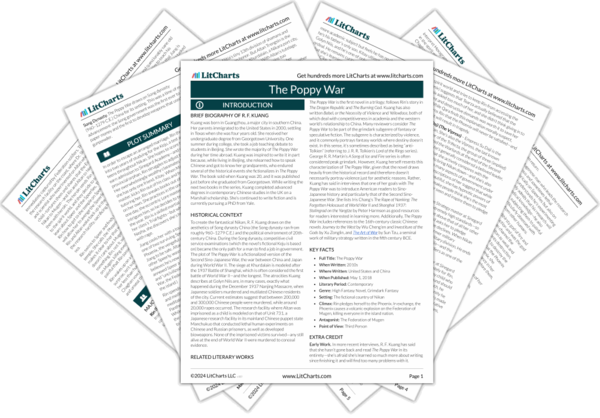This is where readers get the justification for why Altan is addicted to opium: that’s how he was “kept tame” in the lab and then at Sinegard, thanks to Su Daji, the Empress, whom Jiang characterizes as definitely not on Rin and Altan’s side. She’s willing to dehumanize and abuse her own people and soldiers to achieve her goal. Given her double-crossing during the current war, her actions point to her desire for power, not her desire to do what’s best for Nikan. Rin, however, can’t accept that one more of her idols is not who she thought they were. And so, she rejects Jiang’s advice and mentorship and reaffirms her commitment to Altan—he might not be doing the right thing, but he is at least doing
something. Her logic is certainly flawed, but it tracks, given her loneliness and desire to fit in.


